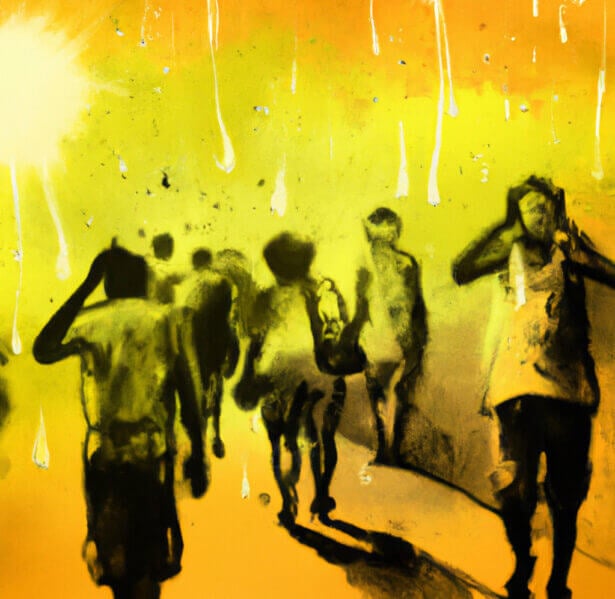The sun,
a fiery iron
brands the sky
as sweat flows
like melting wax,
across the parched
and cracking earth.
A blanket of fumes
trapping the heat
shimmers on the horizon –
summer’s wrath.
Peaks of simmering swelter,
with nowhere to run
bodies stressed
and stranded –
casualties
of exhausting,
manic lives.
This poem is inspired by recent research, which has found that heatwaves are becoming more frequent and more deadly.
Heat waves are periods of abnormally hot weather that last for days or weeks. They are one of the most direct effects of climate change that people experience. As global temperatures rise due to increased greenhouse gases in the atmosphere, heat waves are becoming more frequent, intense and, longer-lasting. The trapped heat energy causes more very hot days and warm nights year-round. However, the impacts are felt most dramatically during peak summer months. Extreme heat events put stress on the body and can cause heat-related illnesses and deaths, especially in vulnerable populations.
In this new study, researchers wanted to understand how the frequency and severity of extremely hot summers will change in the future. They looked at data on heat deaths across 47 countries, combining this information with climate model data to see how often past very deadly hot seasons might occur in future climates. They found that extreme hot seasons that used to happen every 100 years now happen every 10-20 years on average, and that these extreme seasons will happen even more often if we do not adapt to and mitigate against the climate crisis. This shows we urgently need to reduce climate change and help people adapt to hotter conditions, as acting now will reduce impacts on human lives in the future.
If our reporting has informed or inspired you, please consider making a donation. Every contribution, no matter the size, empowers us to continue delivering accurate, engaging, and trustworthy science and medical news. Independent journalism requires time, effort, and resources—your support ensures we can keep uncovering the stories that matter most to you.
Join us in making knowledge accessible and impactful. Thank you for standing with us!


